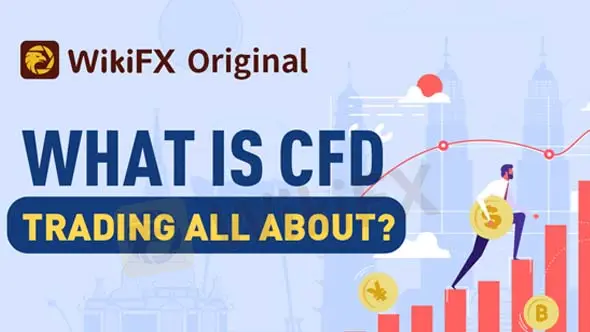简体中文
繁體中文
English
Pусский
日本語
ภาษาไทย
Tiếng Việt
Bahasa Indonesia
Español
हिन्दी
Filippiiniläinen
Français
Deutsch
Português
Türkçe
한국어
العربية
What is CFD Trading All About?
Abstract:The term "CFD" is no stranger to forex traders, but how many truly know the truth behind the operation of CFD trading?

CFD is the abbreviation of Contract for Difference, also known as CFD contracts, which are a type of financial derivative product that emerged relatively late in the financial markets. CFD trading allows traders to speculate on short-term price movements in financial markets without having ownership of the assets, including foreign exchange, stocks, commodities and indices. As a financial derivative, the value of a CFD is derived from the market value of the underlying asset.
A CFD is actually a contract between a buyer and a seller for the difference between the contract price and the settlement price of a commodity. If the difference is negative, the buyer pays the seller, and the whole process does not involve the transaction of the commodity entity. In other words, it is a kind of calculation of the difference between a commodity's opening and closing value. The delivery in this process does not involve touching the underlying commodity itself at all, but only the delivery of their contracts, thus they are cash-settled transactions.

The value of a CFD does not represent the asset's value; it is simply the difference between the opening and closing of a single trade. Depending on whether the trader is bullish or bearish on the asset, both short and long positions can be opened. When trading CFDs, you are agreeing to a process of swapping the market entry price of the underlying asset with the closing price. In this process, the trader is the “buyer” and the broker is the “seller”, and both parties agree that the real-time market price of the asset will prevail.
CFDs allow traders to trade at the movement of the price of an asset and make a profit without taking ownership of the asset. This allows traders to avoid the higher costs of traditional trading. It is also widely used in the global FX retail sector because of its relative ease of use. Another reason that CFD trading is popular for speculative traders is because of the leverage available.
Some brokers allow you to trade CFDs and forex from the same platform and account. CFD trading is legal in many countries but illegal in the United States due to the lack of regulation.
To check if a broker offers the trading of CFD, download the free WikiFX mobile app or visit www.wikifx.com. We are a global forex broker regulatory query platform that holds verified broker-related information. With just a few swipes, you can find all the information you need at your fingertips. Try it out now. You have nothing to lose anyway but a lot more to gain!

Disclaimer:
The views in this article only represent the author's personal views, and do not constitute investment advice on this platform. This platform does not guarantee the accuracy, completeness and timeliness of the information in the article, and will not be liable for any loss caused by the use of or reliance on the information in the article.
WikiFX Broker
Latest News
Germany's Election: Immigration, Economy & Political Tensions Take Centre Stage
WikiFX Review: Is IVY Markets Reliable?
IG 2025 Most Comprehensive Review
ED Exposed US Warned Crypto Scam ”Bit Connect”
Top Profitable Forex Trading Strategies for New Traders
EXNESS 2025 Most Comprehensive Review
Currency Calculator






